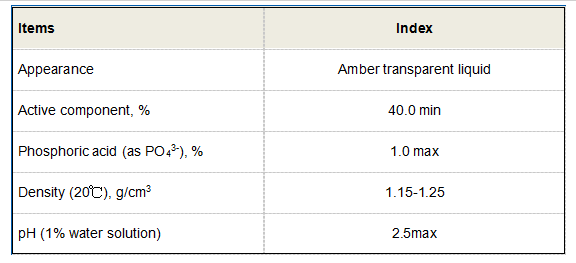poly aluminium
The Versatile Applications and Benefits of Poly Aluminium Compounds
Poly aluminium compounds, particularly Poly Aluminium Chloride (PAC), are a series of highly effective coagulants widely used in water treatment processes. These compounds consist of polymeric forms of aluminium and are known for their improved performance over traditional aluminium salts in various applications. The growing emphasis on water quality and environmental sustainability has led to an increasing interest in the use of poly aluminium in various industries, including municipal water treatment, industrial processes, and even in the production of paper.
Chemical Composition and Properties
Poly Aluminium Chloride is synthesized by mixing aluminium hydroxide or aluminium oxide with hydrochloric acid. The resulting compound can vary in terms of its polymerization, with different degrees resulting in unique coagulation properties. It typically appears as a yellowish or colorless liquid or as a solid substance, and its effectiveness is influenced by factors such as pH, temperature, and the concentration of other substances in the water being treated.
One of the key advantages of PAC is its higher charge density, which enables it to work effectively across a wide range of pH levels, improving its efficiency in coagulating impurities in water. This property facilitates the removal of suspended particles, organic matter, and turbidity, thus ensuring cleaner and safer water.
Applications in Water Treatment
The primary application of poly aluminium compounds is in the purification of drinking water. Municipal water treatment facilities have started incorporating PAC into their processes due to its ability to combine fast settling with effective floc formation. This translates to reduced chemical usage, lower sludge production, and overall enhanced operational effectiveness.
Moreover, PAC is also employed in wastewater treatment for its superior performance in removing various contaminants, such as heavy metals and organic pollutants. In industrial settings, PAC serves to improve the quality of water discharged into the environment, thus helping companies comply with stringent environmental regulations.
Advantages over Traditional Coagulants
Poly aluminium compounds offer several advantages over traditional coagulants such as Aluminium Sulfate (Alum). Firstly, PAC requires lower dosages, which can lead to significant cost savings for water treatment facilities. The lower dosage also means less residual aluminium in treated water, further minimizing environmental concerns.
poly aluminium

Additionally, PAC tends to produce less sludge compared to traditional methods, which not only improves the efficiency of the treatment process but also reduces the costs associated with sludge handling and disposal. This is particularly important in an era where environmental sustainability is of utmost importance.
Usage in Paper Production and Other Industries
Beyond water treatment, poly aluminium compounds find themselves in various other applications. The paper industry utilizes PAC as a retention and drainage aid. By enhancing the retention of fillers and fiber, PAC contributes to a more efficient papermaking process and improves the final product’s quality.
Furthermore, PAC is used in other sectors, including textiles, pharmaceuticals, and food processing. Its antimicrobial properties render it useful in applications requiring enhanced hygiene and safety.
Safety and Environmental Considerations
While poly aluminium compounds are widely regarded as safe for use in water treatment, it is essential for industries to adhere strictly to regulatory guidelines. Monitoring the levels of residual aluminium in treated water is crucial as excessive concentrations may pose risks to human health and the environment.
Moreover, the production and disposal of PAC must be managed responsibly to minimize potential environmental impacts. As industries continue to innovate and develop more sustainable practices, poly aluminium compounds are expected to play a key role in achieving these goals.
Conclusion
In conclusion, poly aluminium compounds, particularly Poly Aluminium Chloride, serve as an invaluable asset in water treatment and various industrial applications. With their superior coagulation properties, lower dosage requirements, and reduced environmental footprint, PAC showcases the advancements in chemical alternatives aimed at enhancing public health and environmental safety. As the demand for efficient and sustainable water treatment solutions continues to rise, poly aluminium compounds will undoubtedly occupy a central role in this critical endeavor.
-
Pbtc Scale InhibitorPBTC: A Scale Protector for Industrial Water TreatmentNewsAug.05,2025
-
Organic Phosphonate: An Efficient Defender in the Field of Scale InhibitionNewsAug.05,2025
-
Hydrolyzed Polymaleic Anhydride: Green Pioneer in Scale Inhibition FieldNewsAug.05,2025
-
PAPEMP Polyamino Polyether Methylene Phosphonic Acid For SaleNewsAug.05,2025
-
Flocculant Water Treatment: A Pioneer in Purification in the Field of Water TreatmentNewsAug.05,2025
-
Benzyl Isothiazolinone: An Efficient and Broad-Spectrum Antibacterial Protective GuardNewsAug.05,2025





